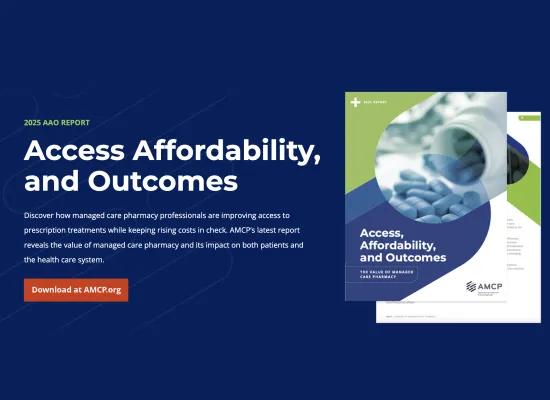
Cost-Effectiveness of Metastatic Colorectal Cancer Therapy Varies by Sequence of Treatments, JMCP Study Finds
Alexandria, Va., June 13, 2016 — Costs and survival benefits of treating patients with metastatic colon cancer with second-line therapies vary considerably depending on the type of regimen provided in the first-line treatment, according to a study in the June issue of the Journal of Managed Care & Specialty Pharmacy (JMCP).
Technological advances in colon cancer treatment have significantly increased survival outcomes in patients with metastatic disease. However, little evidence exists on how the type of regimen administered in the first line of treatment affects the costs and survival outcomes of the second line of treatment, notes the study in JMCP, the peer-reviewed journal of the Academy of Managed Care Pharmacy.
The researchers took up this question by examining 11,000 patients with metastatic colon cancer in the Medicare population.
According to the study, patients who received second-line treatment lived for an additional 6.7 months, on average, compared with patients who did not receive second-line treatment. However, the gain in survival varied between 4 and 9 months, depending on the type of regimen received in the first-line treatment.
The incremental cost associated with the receipt of second-line treatment was $60,231 but ranged between $55,368 and $71,211, depending on the first-line treatment.
Combining survival benefits and costs, the incremental costs per life year gained — associated with receipt of second-line treatment — varied depending on the type of regimen administered in the first-line treatment. Patients who received irinotican first line incurred $97,368 per life year gained, while patients treated first line with fluorouracil/leucovorin or oxaliplatinin incurred $110,621 and $130,689, respectively, for a life year gained from receiving second-line treatment.
“Identifying the ideal sequencing of therapies is an important topic of study in oncology, as often clinical guidelines provide more than one option for first-line and subsequent treatments,” says JMCP Editor-in-Chief Laura Happe. “This study compares the relative cost-effective of alternative sequences, bringing to light important consequences of complex treatment choices.”
The study used the Surveillance, Epidemiology and End Results cancer registry, which is linked with the Medicare claims database, to study elderly metastatic patients diagnosed between 2003 and 2009.
To read the study, “Sequential Therapies and the Cost-Effectiveness of Treating Metastatic Colon Cancer Patients,” by Andinet Woldemichael, PhD; Eberechukwu Onukwugha, MSc, PhD; Brian Seal, RPh, MBA, PhD; Nader Hanna, MD; and C. Daniel Mullins, PhD, visit www.jmcp.org.
About JMCP
The Journal of Managed Care & Specialty Pharmacy publishes peer-reviewed original research manuscripts, subject reviews, and other content intended to advance the use of the scientific method, including the interpretation of research findings in managed care pharmacy. It is dedicated to improving the quality of patient care by providing its readers with the results of scientific investigation and evaluation of clinical, health, service, and economic outcomes of pharmacy services and pharmaceutical interventions, including formulary management. www.jmcp.org.
Featured News & Resources
See Full CalendarAward Applications Open
AMCP eLearning Day: Nexus Encore
AMCP 2026 Registration Opens
Upcoming Events
AMCP offers a wide variety of educational opportunities, from events and webinars to online training.







